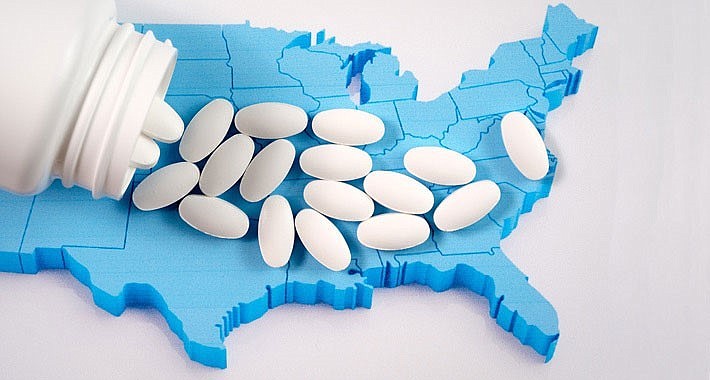- April 30, 2025
-
-
Loading

A few weeks ago, my colleagues and I were interviewing a potential candidate to join our staff. I casually asked if he had children. He responded, “Yes, I have two. One died in October of a heroin overdose.”
We were stunned.
I’m sure I’m not the only one feeling like we live in a protective bubble in Sarasota, thanks in part to our law enforcement agencies and the values of the people who live here. But that parent’s admission made it clear the scourge of death-inducing drugs is here as well.
Sarasota County’s death rate attributed to accidental overdose in 2016 was 26.7 per 100,000, up 24.2% from 2015. Florida’s average is 21.8 per 100,000, up 13.5% from 2015. Manatee County has the highest rate in the state: 54.2 per 100,000.
According to the 12th Circuit Court medical examiner, in 2016, fentanyl analog deaths topped more than 120 in Sarasota, Manatee and Desoto counties. Manatee recorded the most in the state. Fentanyl analogs were not even recorded as a drug-related cause of death until 2016.
Fentanyl analog is a version of fentanyl approved for veterinary use only. Its potency is about 10,000 times that of morphine and 100 times that of fentanyl, which is a synthetic opioid used for chronic pain management, including cancer pain.
The majority of these deaths occurred among 24- to 34-year-olds in Sarasota County.
“We’re in the middle of a child welfare crisis in Sarasota, Manatee and Desoto counties,” says P.J. Brooks, vice president of outpatient and youth services at First Step of Sarasota.
Sarasota County is second in the state for children being removed from their homes because of young parents being addicted or overdosing on drugs, or, even worse yet, babies being addicted to opioids because of their mother’s opioid abuse while pregnant.
In the first quarter of 2018, for instance, 36 babies were born addicted to opioids at Sarasota Memorial Hospital. In 2016, 114 babies were diagnosed with neonatal abstinence syndrome at Sarasota Memorial Hospital. The Agency for Health Care Administration says Florida newborns suffering from NAS rose from 2,487 in 2015 to 4,215 in 2016.
The misuse and addiction of opioids — including prescription pain relievers, heroin and synthetic opioids — began in the 1990s with a dramatic increase in prescriptions of such drugs. And since 2010, the U.S. has seen sharp increases in opioid deaths.
After Sarasota County Sheriff Tom Knight first took office in 2009, one of his first priorities were the pain clinics. “When I started there were 30 pain clinics in Sarasota County,” he said. “We got them down to 15.”
With Sarasota County jail’s population reaching capacity, Knight began implementing specialty courts, mental health screenings and recovery programs in 2012 to combat the growing epidemic. According to an article last October in the Sarasota Observer, Knight said he believes the recovery programs will cut down on third-degree felony charges and conviction charges in the jails — many of which are related to drug use or prior drug-related crimes. Currently, 33% of all third-degree felony arrests were drug-related.
If drug-related incarcerations continue to climb, Knight says, we’ll need a new jail — an estimated $100 million cost. But he also said if we can construct a facility where people don’t need to be locked up, that is protected by the Sheriff’s Office and offers recovery programs, a new jail will not be necessary.
Knight is a leader in Florida fighting the opioid crisis. The Sarasota County Sheriff’s Office is the first office in Florida to equip deputies with Narcan nasal spray. It is the first and only FDA-approved nasal form of naloxone for emergency treatment of a known or suspected opioid overdose. Knight also created addiction recovery pods in the county’s jail in 2015. Knight negotiated with drug manufacturer, Kaléo, to donate 800 doses of Narcan, valued at $280,000, to the Sheriff’s Office.
“Simple answers are not out there,” says Carol Ann Kalish, chief legal officer at Sarasota Memorial Hospital. “We’re a little behind the crisis. But the crisis delivers the response.”
Kalish says Sarasota Memorial is in talks with First Step of Sarasota to partner on delivering therapies for addicts that suffer from collateral health effects, such as heart disease, which can cause prolonged hospital stays.
“On the local level there is a lot of support with our county government, local foundations and the Sheriff’s Office,” says First Step’s Brooks.
In February, the Sarasota City Commission sued pharmaceutical companies in a statewide action; any damages recovered could be used to fund programs assisting residents affected by opioid-related issues.
One such program could be the Mothers & Infants program at First Step. It offers residential treatment services to pregnant or postpartum women with custody of newborns and who have a substance abuse disorder. Since its inception, the program has helped more than 440 babies be born drug free.
In March, Gov. Rick Scott signed HB 21 at the Manatee County Sheriff’s Office to combat opioid abuse. The bill included $65 million for more residential treatment beds, outpatient services, naloxone (Narcan) for first responders and more. The bill also places a three-day limit on prescribed opioids.
Says First Step’s Brooks: “If this were cancer, we would have walks for it.”